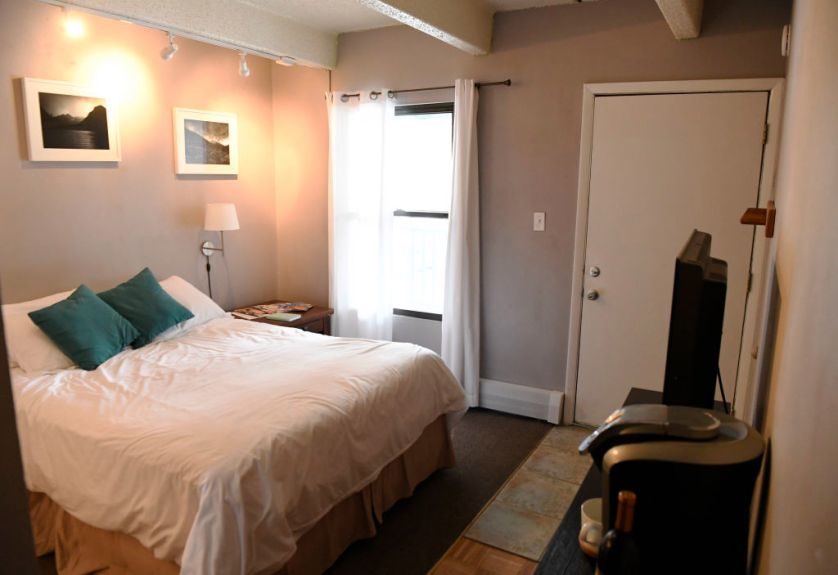Airbnb to take over Denver lodging tax collections from hosts starting April 1

BRECKENRIDGE, CO - APRIL 26: Jennifer Dahir-Kanehl's lock-off room attached to her condo April 26, 2017 in Breckenridge, Colorado. Dahir-Kanehl uses the extra room that has a separate entrance, complete with a queen bed, television, coffee maker, ski rack, bathroom and shower as an AirBnb space to offset expenses. (Photo by Andy Cross/The Denver Post via Getty Images)
By Joe Rubino
Come April 1, Denver Airbnb hosts no longer will be responsible for collecting city lodging taxes from their guests because the popular home-sharing website will do it for them. No fooling.
City staff has been working with Airbnb to shift the duty of collecting and remitting the 10.75 percent levy off short-term rental hosts and onto the company since early last year, when Airbnb started collecting state sales tax. The complicated process took months longer than expected, but a deal is now in place.
The tax will be applied to all reservations booked on the platform from next month forward, city staff informed The Denver Post on Friday, eliminating the possibility of careless or noncomplying hosts not collecting and remitting it to the city. The change is expected to drive up collections over the coming months.
“This agreement simplifies collection for hosts, avoids angering guests and could lead to increased tax revenues for the city,” said James Carlson, a local real estate broker, in an email Friday. “It’s a win-win-win.”
Carlson, who leads compliance classes for short-term rental hosts through his company James Carlson Real Estate, said city rules established in January 2016 that required hosts to collect that tax offered no guidance on how to go about it. This led many to either fold the costs into their prices, paying higher taxes themselves, or bill guests separately, a move that often upset them.
“This is a happy day for a lot of hosts,” Carlson said.
The Denver City Council established its short-term rentals licensing and taxing rules in December 2016, in part to even the regulatory playing field with hotels. But an audit of the first year of those regulations released late last year found the city’s tracking and enforcement of those rules was lacking in its early months. Among the audit’s findings was that between January and August of last year, only about 68 percent of active hosts had obtained business licenses from the city.
But that number is improving. City excise and licensing staff delivered a presentation before a City Council committee on Feb. 14 that showed 2,272 of 3,212 active short-term rental hosts in the city were licensed, a 71 percent compliance rate. Of those listings, 2,505 were on Airbnb.
The city collected $3.06 million in lodging taxes from the short-term rental industry as a whole last year, city finance department spokeswoman Courtney Law said. She said she expects compliance to improve as a result of the impending lodging tax change simply because it will be easier for hosts to meet the requirements.
For Tina Schock, Airbnb taking over city tax collections means she will keep more money when she welcomes guests. Working as both a licensed host at her own home and co-host arranging stays at the homes of people who are away on their own vacations, Schock has been paying the lodging tax herself rather than figuring out a way to collect it from guests.
“It wasn’t very clear on how it was supposed to be done,” she said. “It was a huge pain, so we were just paying it out of pocket.”
A nightly stay in the basement apartment of her Berkeley-area home went for $85 on average last year, so the tax averaged about $9 a night.
Airbnb already collects taxes on behalf of 11 other Colorado cities, including Boulder, Golden and Loveland.